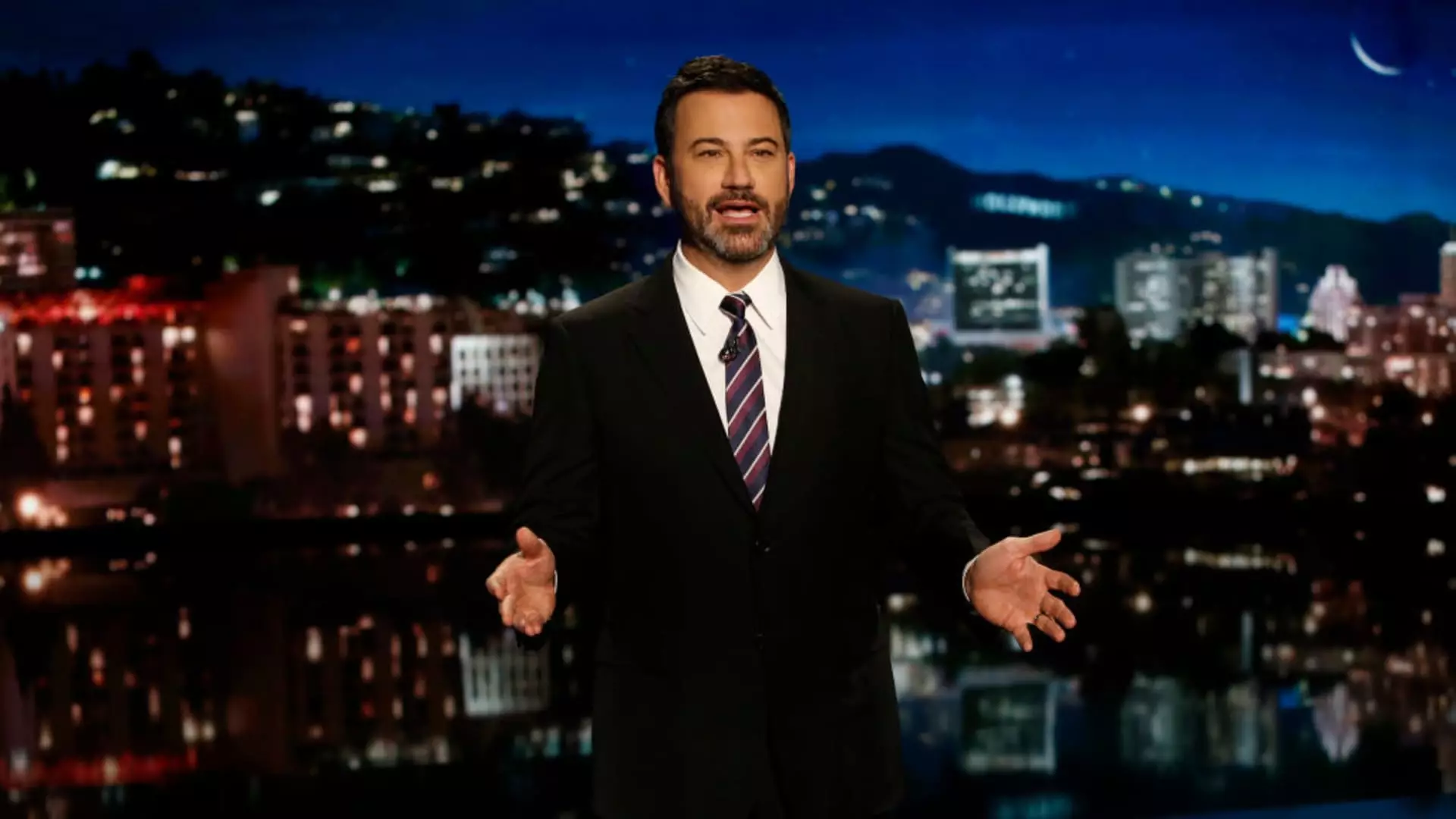The unfolding saga of Jimmy Kimmel’s suspension from ABC is not merely a feud over a joke gone too far; it is a reflection of larger systemic issues that threaten the core of free expression in a democratic society. When a late-night host, known for his satirical wit, faces indefinite suspension over a controversial remark, it exposes the dangerous reach of political and corporate forces eager to silence dissent under the guise of protecting public morality. The story reveals a disturbing shift where accountability is replaced by reflexive censorship, and the fear of offending powerful interests curtails honest dialogue.
The negotiations between Disney, ABC, and Kimmel’s camp highlight a reluctance to confront the uncomfortable truth—that media giants are increasingly wielding their influence to stifle voices they find inconvenient. The lack of a clear resolution signals how fragile the principles of free speech are in an environment where corporate interests and political pressures converge to shape the narrative. The suspension acts as a stark reminder that in today’s climate, even satirical commentary can be labeled dangerous, leading to the suppression of viewpoints crucial for a healthy democracy.
Political Funnels and the Rise of Censorship
The involvement of figures like FCC Chairman Brendan Carr and political figures such as Ted Cruz underscores an alarming trend: government and corporate collusion aimed at controlling what the public can hear and see. Carr’s suggestion that Kimmel’s joke could mislead Americans and his hinted threat of licensing repercussions reveal a government increasingly willing to police speech. Similarly, Cruz’s hyperbolic comparison of FCC actions to mafia tactics illustrates how political rhetoric can escalate into threats of coercion and censorship.
This intertwining of political expediency and corporate power effectively creates a climate of fear for media outlets and entertainers. There is a tangible risk that the right to challenge mainstream narratives or criticize authority will be diminished, ultimately undermining the diversity of thought essential for democratic debate. When influential voices are silenced because their opinions threaten entrenched interests, democracy itself becomes compromised. The danger is not merely in one canceled show but in the chilling precedent it sets for suppressing dissenting voices across the spectrum.
Media as Both a Guardian and a Victim
Hollywood’s reaction, from protests by writers and activists to voices of support from industry veterans like Michael Eisner, underscores the delicate dilemma faced by a culture that champions free expression yet succumbs to external pressures. The protests and public outcry serve as a vital reminder that entertainment media is often both a mirror of society and a battleground. When corporations cave to censorship demands or political intimidation, they threaten to diminish the role of media as a watchdog.
Yet, the incident also reveals how the very institutions that should uphold openness and dissent sometimes act as enforcers of conformity. The response from ABC and Disney, preempting Kimmel’s show without transparent justification, suggests that economic and political fears outweigh commitments to free speech. This betrayal of journalistic integrity risks creating a media landscape where critical voices are muted, and the public is left unchallenged by alternative perspectives. As Hollywood and the broader cultural sphere grapple with these issues, it becomes clear that the fight for free expression is far from over; it is ongoing and increasingly urgent.
The Broader Implications for Democracy and Civic Liberties
The repercussions of this episode extend beyond the entertainment world into the very fabric of democratic society. When the government and corporations decide what speech is acceptable, they threaten the foundational principle that open discourse is essential for truth and accountability. The suppression of Kimmel’s voice, ostensibly over a joke, points to a dangerous tendency to equate trivial or contentious remarks with threats to societal order.
Moreover, the escalation of violence, such as the shooting at the Sacramento ABC station, highlights the chilling reality that censorship efforts are often accompanied by hostility and physical intimidation. This environment breeds fear and self-censorship among media actors, leading to a less informed and less engaged public. A society that prioritizes the interests of power over free discussion risks slipping into authoritarianism, where dissent becomes a crime rather than a right.
In light of these developments, it is increasingly evident that defending free speech involves more than resisting censorship—it’s about demanding accountability from those in power. The challenge lies in safeguarding the values of transparency, diversity of opinion, and open debate. The fight for “Jimmy Kimmel Live” is, at its core, a fight for the soul of democracy—a reminder that when majority interests suppress minority voices, democracy itself suffers.

